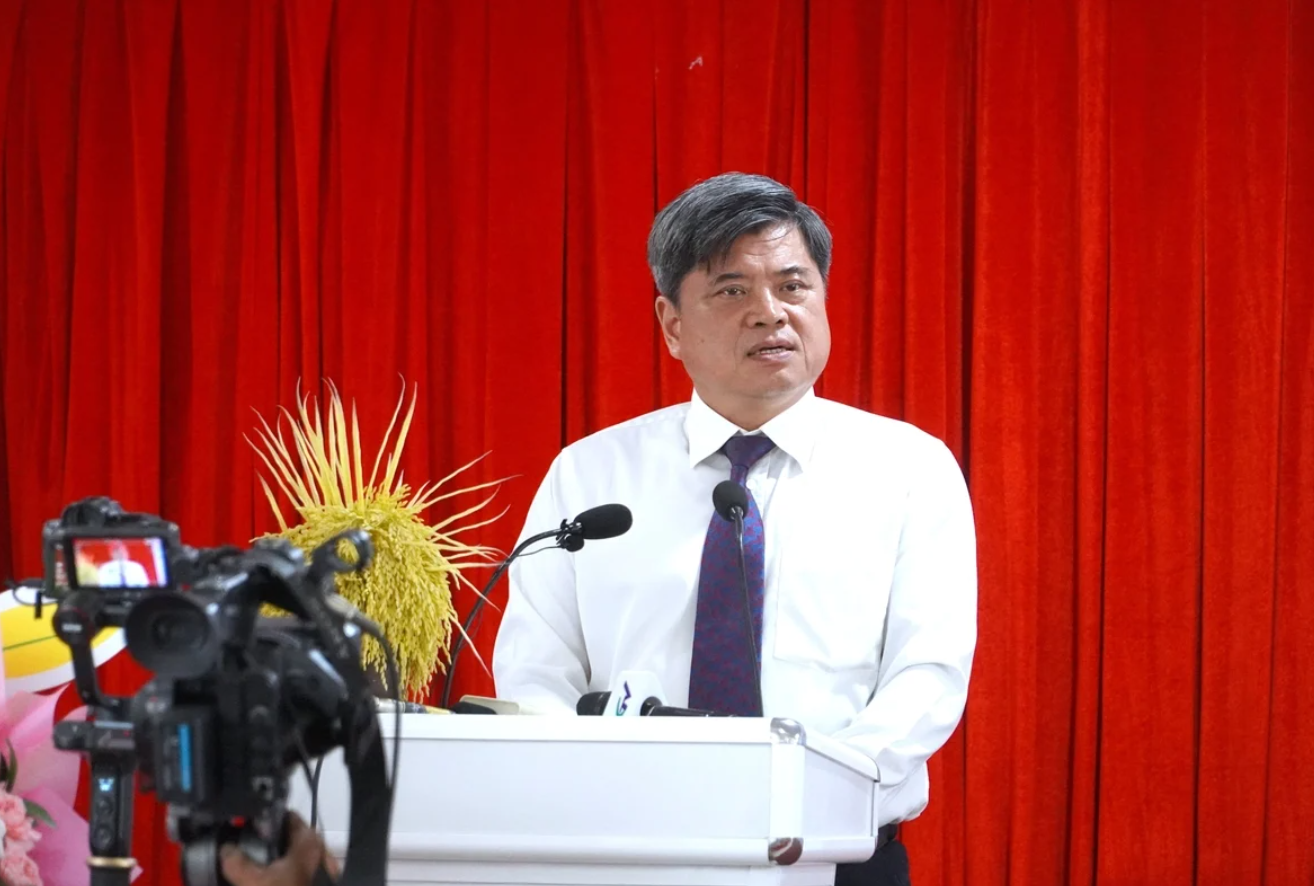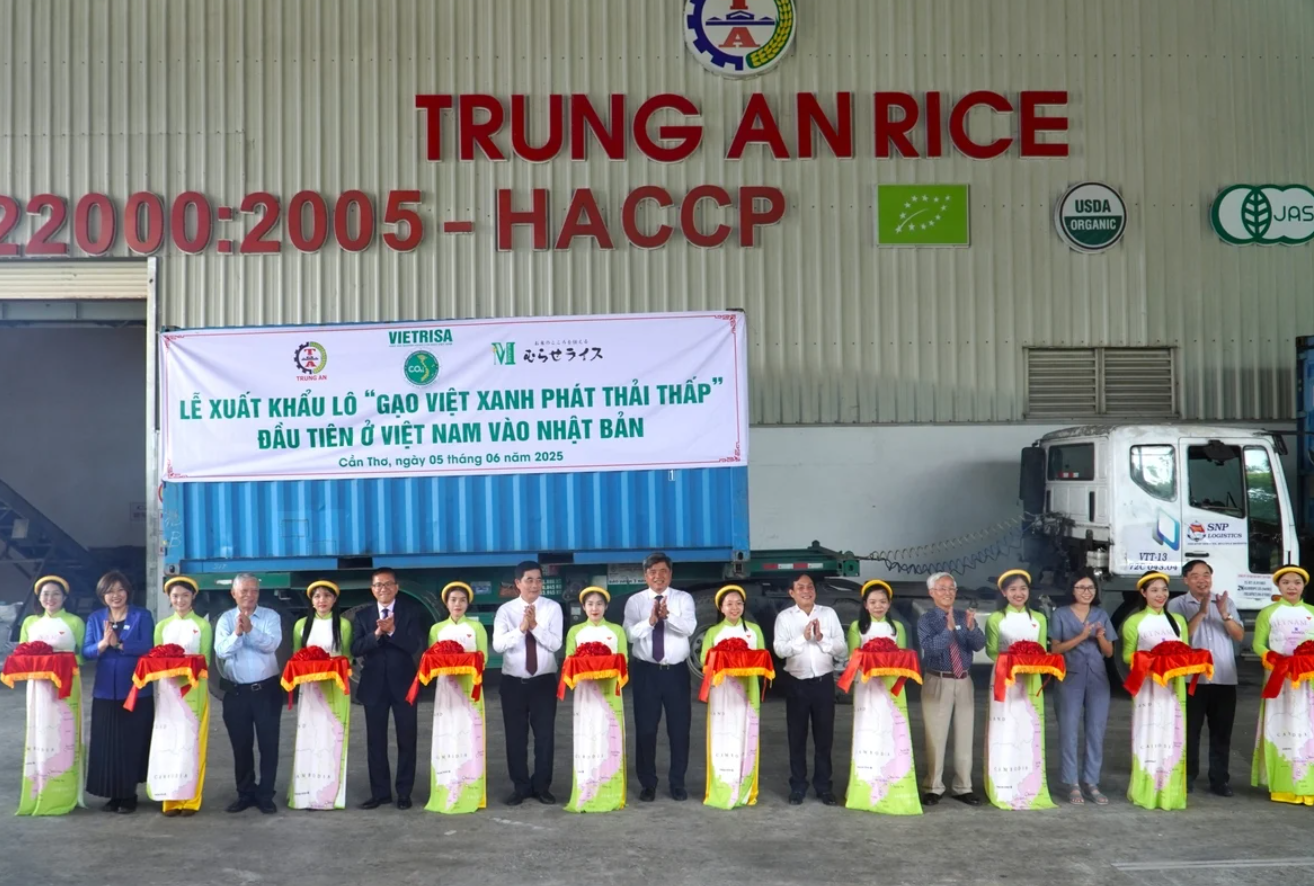On the afternoon of June 5, the first shipment of Japonica rice bearing the label “Vietnam Green Low-Emission Rice” was officially exported to Japan, marking a significant milestone in Vietnam’s journey to green its rice sector. The 500-ton shipment was produced and exported by Trung An High-Tech Agriculture Joint Stock Company in collaboration with Japan’s MURASE Group.
 Deputy Minister of Agriculture and Environment Tran Thanh Nam extends his gratitude to farmers, cooperatives, businesses, and agricultural officials in localities for their contributions to the successful export of low-emission rice to the Japanese market. Photo: Kim Anh.
Deputy Minister of Agriculture and Environment Tran Thanh Nam extends his gratitude to farmers, cooperatives, businesses, and agricultural officials in localities for their contributions to the successful export of low-emission rice to the Japanese market. Photo: Kim Anh.Speaking at the event, Deputy Minister of Agriculture and Rural Development Tran Thanh Nam emphasized: “Through the One Million Hectare High-Quality Rice Project, farmers have made a profound shift in production mindset, from focusing solely on yield to harmoniously balancing land productivity with soil improvement and nutrition enrichment, aiming for long-term added value.”
Deputy Minister Nam noted that the successful entry of Vietnam’s low-emission rice into the Japanese market is a commercial achievement and a strategic direction for the rice sector’s future.
“This is an opportunity for the Mekong Delta to restructure its production methods, addressing the issue of bumper crops with falling prices and creating high-quality products with clear branding in the global market,” he said.
 Lauching ceremony of the low-emission rice export shipment to the Japanese market. Photo: Kim Anh.
Lauching ceremony of the low-emission rice export shipment to the Japanese market. Photo: Kim Anh.At the export ceremony, Mr. Pham Thai Binh, Chairman of the Board of Directors of Trung An Hi-Tech Agriculture Joint Stock Company, shared that the low-emission rice was sold to Japan for USD 820/ton, higher than the average USD 650–700/ton offered by other markets. He noted that this price premium strongly incentivizes farmers and businesses to persist with high-quality, low-emission, and environmentally friendly rice production.
However, Mr. Binh also cautioned that Vietnam’s current supply of low-emission rice is insufficient to meet the strict demands of high-end markets like Japan.
“To meet these stringent standards, businesses and farmers must strictly follow the production protocols outlined in the One Million Hectare High-Quality Rice Project. Emission reduction is just one of nearly 600 active ingredients that Japan requires to be controlled,” he said.
He affirmed that if Vietnam’s low-emission rice can overcome Japan’s technical barriers, expanding to other demanding markets would become significantly easier - helping elevate the global reputation of Vietnamese rice.